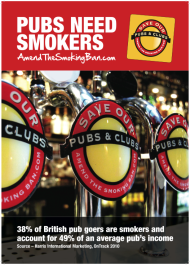Rights and wrongs of free speech
 Monday, November 26, 2007
Monday, November 26, 2007  I woke up this morning to the Today programme and the sound of two MPs - Julian Lewis (Conservative) and Evan Harris (Liberal) - heatedly discussing the pros and cons of tonight's debate at the Oxford Union where BNP leader Nick Griffin and discredited historian David Irving have been invited to speak.
I woke up this morning to the Today programme and the sound of two MPs - Julian Lewis (Conservative) and Evan Harris (Liberal) - heatedly discussing the pros and cons of tonight's debate at the Oxford Union where BNP leader Nick Griffin and discredited historian David Irving have been invited to speak.
First, I should declare an interest. Julian Lewis and I go back a long way. From 1983-85 he helped raise funds to support a national student magazine that I founded and edited. (One of our goals was to strike a blow against the closed shop system whereby undergraduates had to be members of the National Union of Students.) For five years thereafter I worked for him as director of the Media Monitoring Unit which he founded in 1985 with former Labour minister Lord Chalfont to combat unrestrained political bias on television news and current affairs.
Yesterday, Julian announced that he was resigning "with great sadness" his life membership of the Oxford Union, arguing that the right to free speech should not guarantee access to "privileged platforms". In his letter to the union's officers, he wrote:
"Nothing which happens in Monday's debate can possibly offset the boost you are giving to a couple of scoundrels who can put up with anything except being ignored. It is sheer vanity on your part to imagine that any argument you deploy, or any vote you carry will succeed in causing them damage. They have been exposed and discredited time and again by people vastly more qualified than you in arenas hugely more suited to the task than an undergraduate talking-shop, however venerable."
I know how carefully Julian chooses his words and, to be fair, he isn't arguing that people shouldn't have the right to say (within the law) what they think. His principal grievance is with the Oxford Union for offering Irving and Griffin a prestigious arena for their views.
There's no direct comparison but there are echoes of the argument we had with the BBC and other broadcasters in the Eighties - namely, if our democratic political system is to be defended, is it reasonable to give equal weight and prominence to the opinions of extremists who wish to undermine the system?
Politics has changed since then, of course. Back then there were clear battles between right and left, capitalism and socialism, democracy and dictatorship (aka the Cold War). Indeed, one of the sad things about Britain today is that those of us who fought so hard to defend our democratic institutions have been badly let down by the "democrats" in power (and in opposition).
But the arguments about free speech haven't changed. Then again, Julian's point is not about freedom of speech. It concerns "privileged platforms". The danger is, if we accept this concept, it could so easily be abused by those wishing to stifle debate on all manner of subjects.
Like Julian, I abhor the BNP and what little I know of David Irving's views. But where do we draw the line? Who decides when (and where) a certain point of view can be expressed? I'm not sure I know the answer but it's an important issue because the definition of a truly free society depends on it.
 Free Speech
Free Speech 









Reader Comments (3)
Sorry to agree with you once again Simon but spot on. If you deny people a platform, no matter how noble or humble, it gives, to me, the impression that you are scared of the person's view. They may have a point in other words. I too hold no truck with the BNP and particularly with Irving who denies the Holocaust ever happening and/or Hitler knowing about it. I have personal reasons to find Irving offensive. Although not Jewish, Gypsy or Slavic, mentally disabled people were euthanised in the gas chambers. I have a son who is mentally disabled (Downs) and he too would of been gassed. However I support Irving's and Griffin's right to be heard, in sprit and letter.
It is better to have views like the BNP out in the open and subject to critical debate than try and stifle it underground.
I have no sway towards the BNP and most of their policies I find quite hideous. However, it is through the abundance of "poltical correctness" in today's society that actually freedom of speech is being curtailed. If anyone talks about immigration, they are harangued for being racist. What nonsense. Have the people of this country been consulted on the prospect of the UK population doubling by 2080? No - politicians bury their heads in the sands.
It is precisely this lack of debate that means the likes of the BNP prosper and mainstream politicians are failing to address people's legitimate concerns on the matter of immigration.
Bill
I agree. My mantra is the well-known remark by Rousseau, "I may disagree with what you say, but I will defend to the death your right to say it." I agree with Bill's remark as well. People are so restricted now in what they can and cannot say, because of political correctness. I would even go so far as to say that PC is the antithesis of free speech. People are shouted down when they dare to say anything un-PC, and labelled "fascists" or "racists". In the end, people just keep quiet. I hate Irving and the BNP, but I have difficulties with Islam because of their attitude towards women and their intolerance. But would I be allowed to say that in a public forum? I doubt it.